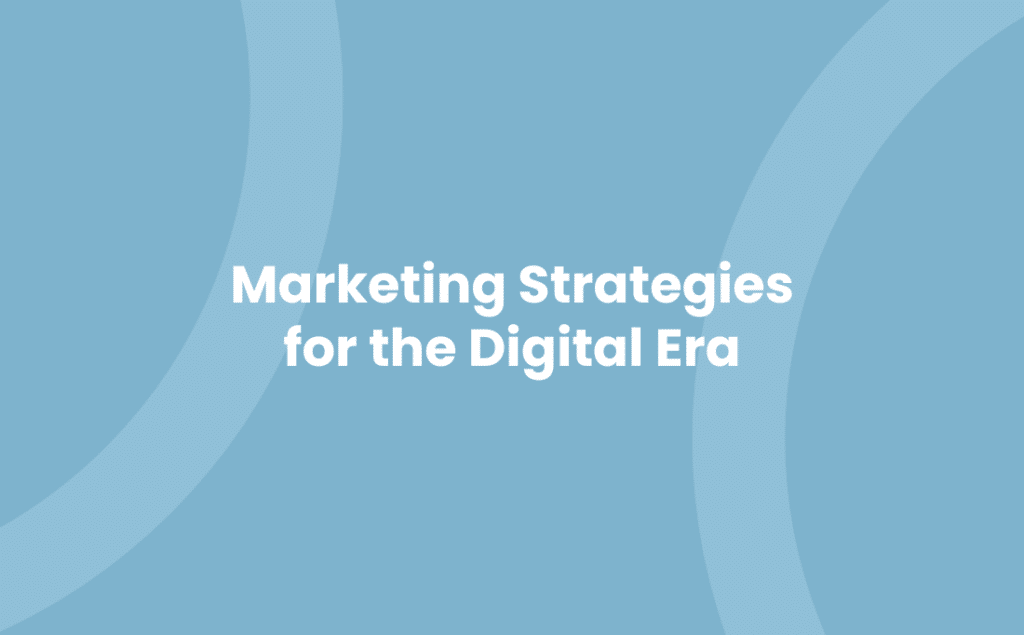Navigating today’s digital landscape can feel like steering a ship through uncharted waters. As the captain of your business, you’re tasked with the crucial role of charting the course towards digital transformation. But how do you ensure your marketing strategies are up to the task?
Digital transformation isn’t just about adopting the latest tech. It’s about revamping your entire marketing approach to harness the power of digital tools and meet your customers where they are. Stay tuned as we explore the most effective digital transformation marketing strategies that will help your business sail smoothly into the future.
Understanding Digital Transformation Marketing Strategies
As you traverse the path of digital transformation in your business, it becomes crucial to grasp various digital transformation marketing strategies. These strategies play a prominent role in acclimatising businesses to the virtual domain, ensuring they effectively utilise digital tools for customer engagement. The right strategy could yield lucrative benefits for your small or medium enterprise (SME).
Firstly, focus on customer experience. With digital tools at hand, understanding your customer becomes convenient. Surveys, feedback, AI-driven insights are some of the ways to comprehend customer behaviour. Getting under the skin of your customer’s digital experience enables you to design your services and offers accordingly.
Secondly, create an Integrated Marketing Campaign (IMC). This cohesive strategy merges all aspects of marketing communication. Being customer centred, it’s a strategy that appeals across the entire customer journey. It involves traditional and digital marketing disciplines, working together as part of a seamless campaign. Any marketing communication, regardless of channel, looks and feels like it’s part of the whole brand narrative.
Thirdly, use data-driven strategies. Data is a game-changer in this digital era. By properly analysing collected data, you’re able to make educated decisions for your business. Data-driven marketing represents the practice of extracting actionable insights from customer data to devise effective marketing strategies.
Finally, adopt a mobile-first approach. Considering that most digital users are on mobile, having a mobile-centric strategy is vital. This involves optimising your website for mobile viewing, developing mobile applications, and using SMS and location-based marketing.
So, understanding these strategies isn’t a walk in the park. However, as you delve into them, you’ll realise they are not as difficult to implement as they might initially appear. They just require careful thought, meticulous planning and consistent effort. And don’t forget, your journey doesn’t end once you’ve implemented these strategies. The digital realm is constantly evolving, and so too your techniques must adapt.
Embracing the Digital Shift: Key Strategies
Dive into the digital transformation marketing arena. It’s a field packed with potential for your SME. Steering through digital marketing strategies offers a path towards sustainable success. Dive deep, don’t just skim the surface.
Prioritise the customer experience. Customer expectations assume a new gravity in the digital landscape. Blend digital and physical touchpoints to create seamless customer journeys. The Argos click and collect service affords an example of this projected into real-world practice.
Digital tools help refine your integrated marketing campaigns (IMC). IMC harmonizes your promotional efforts across various channels. IMC delivers a coherent, consistent message that resonates with your customers. ASOS’ combination of email marketing, social media engagement, and influential collaborations fosters customer loyalty and trust.
Data fuels your digital transformation marketing journey. It helps pinpoint customer needs and preferences. Insightful data analysis enables personalised messages. Amazon’s recommendation system epitomises this principle. It offers tailored suggestions, enhancing the customer shopping experience and maintaining engagement.
Imagine a world where your business has a mobile-first strategy- a reality necessary in our smartphone-dominated age. Prioritise mobile-friendly marketing strategies. Google’s push for mobile-first indexing affirms the significance of having mobile-optimised websites.
Embrace the digital shift; it’s not an easy ride but, it’s worthwhile. The reward? Improved customer satisfaction, greater business efficiency, and profound growth. Now, go on and leave an indelible mark on the digital landscape with your strategic embrace of digital transformation marketing.
Specific Digital Marketing Techniques for Digital Transformation
As a forward-thinking business owner, you understand that mastering digital transformation marketing strategies is a non-negotiable in the current business landscape. Success isn’t bound to conventional strategies any longer. Adaptation of specific digital marketing techniques is vital for flourishing in the digital age. This section breaks down three precise digital marketing techniques, Search Engine Optimisation (SEO), Social Media Marketing (SMM), and Content Marketing‚ which you can utilise in your digital transformation journey.
Search Engine Optimisation (SEO)
SEO involves optimising your digital content so it appears higher in search engine result rankings. More visibility equates to more potential to engage with customers. Google’s algorithms reward websites providing valuable, user-friendly content. By using SEO, your website becomes more attractive to search engines, increasing the likelihood of higher rankings.
Social Media Marketing (SMM)
SMM harnesses the power of social media platforms such as Facebook, LinkedIn, Twitter, and Instagram. A robust SMM strategy assists you in reaching a vast audience quickly. It’s about more than just exposure, though. Platforms like these allow you to engage directly with your audience, building brand loyalty and trust.
Content Marketing
Content marketing involves crafting and distributing valuable, pertinent, and consistent content to attract and engage your target audience. Behind each piece of content is a potential customer, and providing value through informative, entertaining material encourages them to engage with your brand.
Employing these specific digital marketing techniques is crucial in your overall digital transformation marketing strategy. Integrating these three strategies leads to a more holistic approach, directly contributes to achieving your business goals, and offers your business a strong advantage in the digital landscape. Remember, success in digital transformation marketing isn’t overnight. It’s a continuous process of learning, adapting, and evolving.
Case Studies of Successful Digital Transformation Marketing Strategies
In reflecting the success of digital transformation marketing, various businesses have accelerated growth using digital marketing strategies. Here, let’s look into two compelling case studies that exemplify successful digital transformation marketing strategies.
The first case is Starbucks. Arguably a master player in mobile orders and payment systems, Starbucks has embraced digital transformation marketing strategies with confidence. With the introduction of their mobile app in 2011, they moulded the path of convenience for their customers. The provision of mobile pre-ordering and payment options created a personalised coffee buying experience. By 2018, 30% of all Starbucks’ transactions, a clear testament to their effective digital marketing strategies.
Our second case study focuses on the media broadcasting company, HBO. Known for its cutting-edge digital marketing tactics, HBO has been at the forefront of adopting digital transformation in its marketing strategies. Their programme ‘Game of Thrones’ gained immense popularity worldwide, partially attributed to their innovative digital marketing tactics. HBO mastered digital transformation marketing by utilising social media platforms and creating compelling multimedia content, capturing their audience with a unique combination of intrigue and engagement. This digital strategy resulted in record-breaking viewer numbers and significant growth in their subscriber base.
These case studies underline how digital transformation marketing strategies can effectively engage customers and drive business growth. Starbucks and HBO both embraced the opportunities of digital marketing, resulting in improved customer engagement and increased revenue. By using these successful businesses as examples, it’s clear how adopting a digital transformation marketing strategy is no longer optional for businesses, it’s a key component for success. In your journey through digital transformation, these stories provide inspiration, underlining the immense potential of successful digital marketing strategies.
Barriers to Digital Transformation in Marketing
Successfully implementing digital transformation marketing strategies presents real challenges. Several barriers exist, hindering businesses from fully leveraging the power of digitalisation.
- Resistance to Change: Fear of the unfamiliar often stops companies from accepting digital marketing strategies. Employees may resist learning new software tools, preferring traditional methods. Change management techniques, such as training and open communication about the benefits of digital transformation, can mitigate this resistance.
- Data Security Concerns: As digital transformation marketing pivots around data collection and analysis, issues of data privacy and security arise. This often stems from misgivings about storing customer data online or the potential for breaches.
- Inadequate Skills and Knowledge: Digital marketing necessitates a skill set that some firms might lack. Mastery includes areas like SEO, data analytics, and social media management. In such instances, hiring outside expertise or training in-house staff remains a viable option.
- Lack of Resources: Digital transformation could be seen as expensive, especially for small to medium enterprises (SMEs). Implementing new software, training staff, and regular upkeep all come with costs. However, the benefits of reaching a wider audience and improved decision making through data analysis usually outweigh this investment.
- Inconsistent Customer Experience: Maintaining a seamless customer journey when transitioning to digital platforms isn’t always straightforward. Integrating digital and traditional marketing strategies to ensure a consistent customer experience can be a complex process.
- Culture and Leadership Buy-in: Without support from top management and a willingness to change the corporate culture, digital transformation efforts can falter. Leaders need to champion the move towards digitisation, driving the change forward.
It’s important to note that overcoming these barriers doesn’t guarantee instant results. Patience and persistence, though, can help your company navigate the digital marketing landscape, optimising performance and engaging customers more effectively.
Envisioning Future Digital Transformation Marketing Strategies
As digital transformation becomes more embedded in business operations, marketers look ahead with anticipation, teeming with innovative ideas for future strategies. Predictive analysis and Artificial Intelligence (AI) will play pivotal roles, guiding businesses towards their customers of tomorrow.
Leveraging Artificial Intelligence
Artificial Intelligence has revolutionised countless industries, and its applications in digital marketing strategies show no signs of slowing. AI offers advantages in consumer behaviour prediction, personalisation, and real-time customer support that human marketers cannot match. For example, Amazon’s AI algorithms famously curate personalised product recommendations, maintaining a market edge through enhanced customer experiences.
Predictive Analysis in Marketing
Predictive analysis furthers marketing capabilities by identifying trends and market patterns which often escape unaided scrutiny. It allows for personalised interactions with the customer, fostering loyalty and driving leads. Retail giant, Walmart, employs predictive analysis to optimise inventory levels and improve store layouts, epitomising the strategy’s potential.
Adaptive Content: The Path to Personalisation
Adaptive Content, a technique tailoring content to individual preferences, will be at the forefront of future digital transformation marketing. This innovative practice stands to exponentially enhance consumer interactions, imbuing an unprecedented level of personalisation. Netflix’s viewer recommendations represent this strategy, amassing a wealth of customer data to deliver personalised content suggestions.
Voice Search: The Silent Revolution
In an era where convenience is king, voice search inevitably challenges traditional text-based queries. ComScore predicts that by 2020, 50% of all searches will be voice-based. Hence, optimising your content for voice search isn’t an option but a necessity. Domino’s Pizza’s Easy Order leverages voice assistant technology, reinforcing the power of voice search technology in future marketing strategies.
Dwelling on these developments weaves an intriguing narrative of tomorrow’s digital marketing landscape. However, remember that the key to genius isn’t foresight alone but the ability to adapt with agility to the ever-evolving realm of digital transformation. As a business owner, don’t merely prepare for these changes – harness them to drive your brand’s success.
Conclusion
You’ve journeyed through the realm of digital transformation, uncovering its impact on marketing strategies. You’ve seen how customer experience, Integrated Marketing Campaigns, and a mobile-first strategy are crucial in this digital era. You’ve dived into SEO, SMM, and Content Marketing, essential tools for success. You’ve learnt from Starbucks and HBO, who’ve successfully embraced digital transformation.
Looking forward, you’ve glimpsed the future. Predictive Analysis and AI aren’t just buzzwords, they’re the guiding lights for businesses seeking their future customers. You’ve seen how Amazon and Walmart are harnessing these technologies to optimise their marketing strategies. You’ve explored Adaptive Content and the rise of Voice Search, with Netflix and Domino’s Pizza leading the charge.
Remember, in this ever-evolving digital landscape, adaptation isn’t just a survival tactic, it’s the key to success. Harness these emerging trends, and you’ll not only survive but thrive in tomorrow’s marketing landscape.


